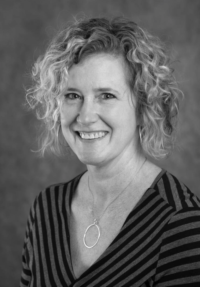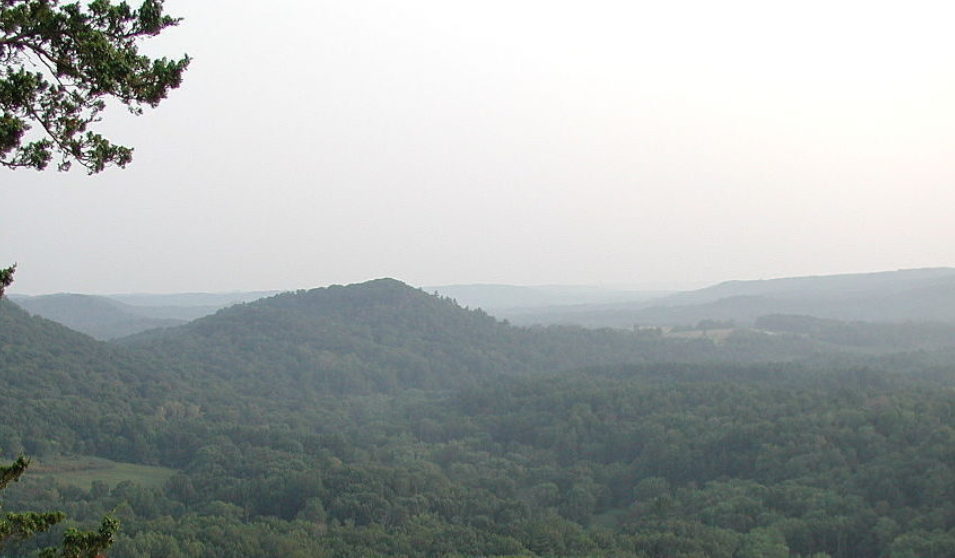The Rural Schools Collaborative is excited to announce the establishment of the Driftless Hub, which will serve Wisconsin and Minnesota. This new Hub configuration will be hosted by the School of Education at the University of Wisconsin-Platteville, and replaces RSC’s former Wisconsin Hub.
Noted as the land untouched by glaciers, the Driftless Area of southwestern Wisconsin, southeastern Minnesota, northeastern Iowa, and northwestern Illinois is a geological treasure. The idyllic rolling hills and gentle valleys that characterize the Driftless Area are a stark contrast to the rest of the Midwest, and it was in this unique setting that the School of Education at UW-Platteville was chartered in 1866 as the state’s very first school for teacher preparation.

Dr. Jennifer Collins, director of UW-Platteville’s School of Education remarks, “We like to say that teaching started here, and now it feels like we’re going back to our roots. We started as this small normal school training rural teachers because that’s all there really were, one-room schoolhouses…There’s a lot of pride for us in that; that teaching started here and now we’re coming back to serve those same communities.”
Indeed, many of the university’s students are from the surrounding rural communities. Collins said, “80% of our students are teaching in rural schools, and half of those are from within 50 miles of the university. So, if we want to be responsive to what our students are doing and where they’re going, we need to stop and look at where we’re training them to go—is it an education for anywhere, or for somewhere?”
Collins, who will serve as the Hub liaison, grew up in a small town in Iowa. While she began her 20-year career focused on urban education in Charlotte, North Carolina, she returned to the Midwest six years ago with a renewed passion for rural schools and communities:
“It was an interesting transition because there were a lot of issues I was seeing here that were the same in urban areas, just in a different context. I started thinking how urban areas built a framework, had this narrative built around urban education, and had built a curriculum in order to address those things; and I thought why aren’t we doing more of that in rural spaces?”
Chief among those areas of overlap is persistent poverty. “There are pockets of poverty in urban areas, and I saw how that manifests itself in kids’ academic progress, and how it manifested itself in funding and access,” Collins explains. She continued, “Your zip code shouldn’t determine your future. What are we doing to prepare our teachers to ‘triage’ those issues and provide support for those students?”
Training teachers to be prepared for a rural school will be a primary focus for the School’s new kindergarten through 9th grade licensure program, launching this fall. With a particular emphasis on place-based practices, professional flexibility, equity and inclusivity, and social justice, Collins sees great opportunities for this program to critically engage students on the realities of living and teaching in a rural area:
“The predominant message we hear is that to be rural is to be at a deficit. Not to say that rural doesn’t have its problems, we most certainly do, but what are our strengths and assets, too? We’re equipping students with the ability to see these issues and the tools to address them. We’re also getting them to look at their place with a critical eye and to see not only whose voices are being shared, but whose are being left out. So, from your first introduction to education class you’ll begin to talk about and think about rural areas.”
And through a unique program offered in the state of Wisconsin, some of Collins’ students will be able to practice these new, rural-focused skills in a classroom while still earning their degree. Rather than a traditional student teaching arrangement where students are constantly paired with a cooperating teacher, students can opt for the “internship track.” Collins notes that internships can be a mutually beneficial program for students to utilize the concepts and tools they learn at UW-Platteville while rural school districts can lessen the teacher shortages in their area.
While Collins admits that there’s still much planning that needs to happen by fall when the program officially starts, she is nonetheless looking forward to this new partnership with the Rural Schools Collaborative. “I love to collaborate,” Collins affirms, “I like being part of a team, and I think that comes from being from a small town—we’re independent people, but we lean on each other a lot, and we depend on each other.”
Liliana Coelho, newly named assistant director for the Rural Schools Collaborative, views the unique regionality of the Driftless Hub as a source of strength for the budding network. “Looking at networks and resources on a regional basis makes a lot of sense. When you have a similar landscape, there can be certain understandings and resources shared within that community, which is different than a network spanning an entire, diverse state.”
“We are looking forward to the partnership [with UW-Platteville],” Coelho enthuses. “Working with Dr. Collins already has been such an energizing and inspiring experience. We’re so excited to see where the project will go and the relationships with others they will foster in the region.”




